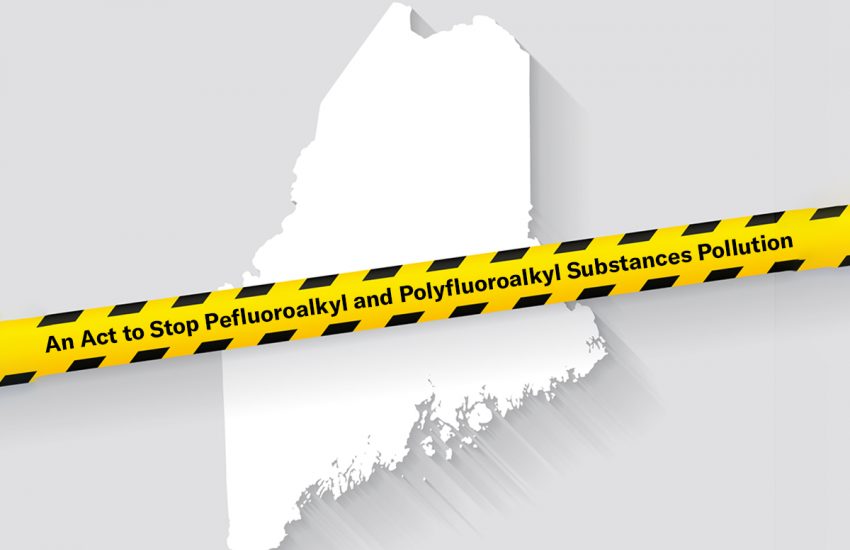On July 15, 2021, Maine became the first state to ban per- and poly-fluoroalkyl substances (PFAS) from most products by the year 2030. Under the law, PFAS means “substances that include any member of the class of fluorinated organic chemicals containing at least one fully fluorinated carbon atom”—a class of thousands of chemicals.
Maine’s new law titled “An Act to Stop Perfluoroalkyl and Polyfluoroalkyl Substances Pollution,” sponsored by Representative Gramlich, was adopted by the Maine legislature as an emergency measure (which does not require the governor’s signature). The law prohibits the sale of products containing “intentionally added PFAS,” which is defined to mean “PFAS added to a product or one of its product components to provide a specific characteristic, appearance or quality or to perform a specific function,” and also includes “any degradation byproducts of PFAS.”
The law explicitly states that residential carpets or rugs, as well as fabric treatments that contain “intentionally added PFAS” are barred from sale beginning in 2023. As our readers know, PFAS have been used in many products, including cookware, food packaging, cosmetics, and consumer goods.
There are, however, some exceptions to preclusion under the new law when there are (a) no “reasonable alternatives” available, and (b) those products whose use cannot be avoided—“currently unavoidable use”—which might include products that are “essential for health, safety or the functioning of society.”
Starting in January 2023, manufacturers will be required to report to the Maine Department of Environmental Protection if they sell products that contain PFAS. In addition to providing a brief description of the product and purpose of the included PFAS, manufacturers will have to notify the state of “the amount of each of the PFAS … in the product, reported as an exact quantity determined using commercially available analytical methods or as falling within a range approved for reporting purposes by the department.”
The reaction to the new law was predictable. Environmental groups praised the legislation, where others called it “misguided.” In particular, some groups believe that the law could ban important products that Maine residents rely on frequently, such as forest products, and products in various industries like healthcare, textiles, electronics, and construction.
Although the federal government and a number of states have passed laws to regulate PFAS (or certain chemicals under the PFAS umbrella), Maine’s new law seems to go the furthest in banning a large contingent of products. The Maine law also requires the Maine DEP to create a PFAS “source reduction program” that provides information, education, and—if funds permit—“grants to publicly owned treatment works and municipalities to reduce PFAS entering air, water or land.”

